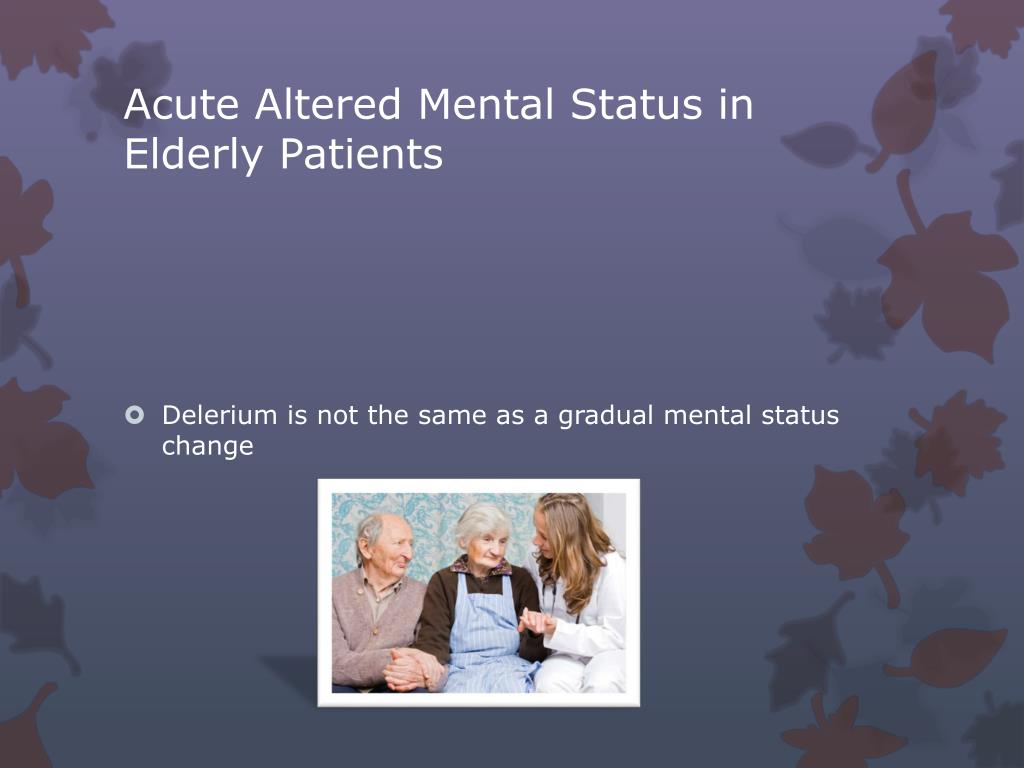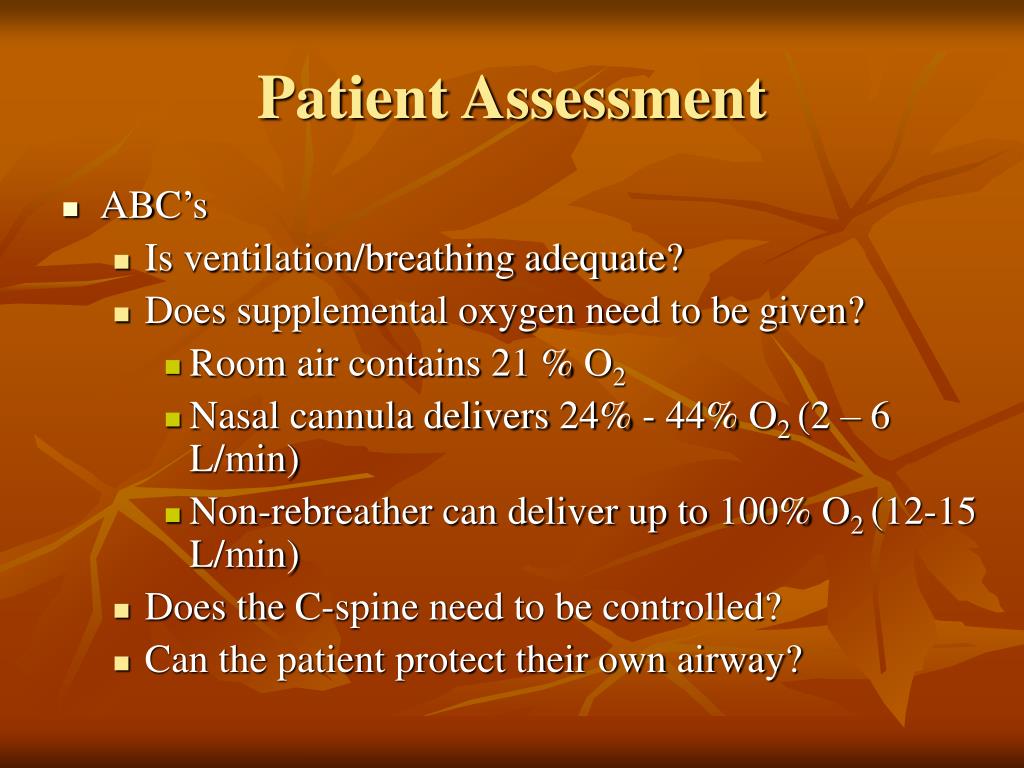

It's essential to seek emergency medical care if you, or a loved one, show signs of this condition. The change is often temporary, but can quickly become life-threatening. It stems from certain illnesses, disorders and injuries affecting your brain.

The initial assessment helps emergency care providers quickly determine the severity of your symptoms and start lifesaving treatment, if necessary. Altered mental status is a change in mental function. Identification of Cardiogenic Shock.Clinical: altered mental status. What else might an altered mental status evaluation involve? Note: consider the diagnosis of normotensive cardiogenic shock when normal BP but rising lactate and transaminitis. Exposure: Performing a head-to-toe physical exam to look for signs of injury or medicated transdermal patches.Neurological deficits: Determining the level of consciousness and screening for neurologic injury, such as paralysis on one side of your body.Circulation: Checking your pulse, blood pressure and heart rhythm.Breathing: Listening to your lungs with a stethoscope.Airway: Examining your airway to make sure it’s open.The initial physical exam often involves: They start by asking you (or a loved one if you can’t communicate) about your medical history. In many cases, this takes place in a hospital emergency department.Įmergency care providers tailor your assessment based on altered mental status symptoms and how severe they are. Assessment of the patient with altered mental status must include the following key elements: 1. Respiratory distress, including shortness of breath.ĭiagnosing an altered mental status involves a thorough evaluation to determine the cause.Social withdrawal, avoiding interactions with other people.Īdditional altered mental status symptoms.Euphoria, a feeling of intense happiness.Slow responses to questions or stimuli.Hallucinations, seeing or hearing things that aren’t there.Forgetfulness ( amnesia) and other memory problems.Altered consciousness, which may include coma.They include: Changes in cognitive function and awareness You may experience a broad range of altered mental status symptoms. What are altered mental status signs and symptoms? Overdose or withdrawal from opioids, alcohol and other controlled substances.Anticholinergics, a group of drugs that control involuntary muscle movements.Low calcium levels in the blood (hypocalcemia).Low sodium levels in the blood ( hyponatremia).Obstructive hydrocephalus, fluid build-up in your brain that increases pressure in your skull.Potential causes include: Central nervous system issues In people with dementia, progressive mental decline is the natural course of the disease.Ī sudden altered mental status, such as delirium and psychosis, can be due to issues with nearly any organ system. What are the causes of altered mental status?


 0 kommentar(er)
0 kommentar(er)
